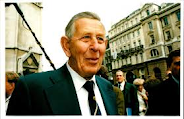On May 27th in 1992 all the clubs in the season's First Division resigned from the Football League, en masse, and made themselves available for the newly formed FA Premier League. The change made mo difference to the "competition"nor the rules but it did mean that the "Top Flight" could now negotiate its own broadcast and sponsorship rights independently from the Football League.
The competition was founded as the FA Premier League on 20 February 1992, following the decision of First Division (the top-tier league from 1888 until 1992) clubs to break away from the English Football League. However, teams are still relegated to and promoted from the EFL Championship at the conclusion of each season. The Premier League is a corporation managed by a Cheif Executive, with member clubs acting as shareholders. The Premier League takes advantage of a £5 billion television rights deal, with Sky and BT Group securing the domestic rights to broadcast 128 and 32 games, respectively. This deal will rise to £6.7 billion for the four seasons from 2025 to 2029.The league is projected to earn US$7.2 billion in overseas TV rights from 2022 to 2025. Clubs were apportioned central payment revenues of £2.4 billion in 2016-17, with a further £343 million in solidarity payments to EFL clubs.
The Premier League is the most-watched sports' league in the world, broadcast in 212 territories to 643 million homes, with a potential TV audience of 4.7 billion people. As of 2024/25, the Premier League has the highest average match attendance of any association football league in the world, at 40,430 per game, and the highest aggregate attendance. Most stadiums operate close to full capacity. The Premier League is currently ranked first in the UEFA Coefficient Ranking, based on performances in European competitions over the past five seasons, ahead of Spain's La Liga. The English top-flight has produced the second highest number of members of European Cup/ UEFA Champions League titles, with a record six English clubs having won fifteen European cups in total.
Over that period, 51 teams have played in the Premier League, two of which, Cardiff City and Swansea are located in Wales; they play in the English Football League system for practical and historical reasons.
Preston North End are the only former top-flight First Division champions who have never played in the Premier League; they are among a group of fourteen, twelve of which are active, that have played in the old First Division but not in the Premier League. By contrast, Barnsley, Bournemouth, Hull City, Reading, Swindon Town and Wigan Athletic never played in the old First Division before being promoted to the Premier League in 1997, 2015, 2008, 2006, 1993 and 2005, respectively.
Eleven of the 22 founder members of the Premier League will compete in the 2025–26 season. Six (Arsenal, Chelsea, Everton, Liverpool, Manchester United and Tottenham) have contested every season of the Premier League. The remaining five, Aston Villa, Crystal Palace, Leeds United, Manchester City and Nottingham Forest, were also founder members, though each team has been relegated at least once in the past. Two clubs, Brighton and Hove Albion and Brentford, are not founding members of the Premier League, but have not been relegated since making their debuts in the Premier League after promotion in 2017 and 2021, respectively.
These clubs have played in the English and Welsh TOP Flight but not in the Premier League: Carlisle, Preston North End, Grimsby, Notts County, Northampton, Oxford Utd, Bristol City, Leyton Orient and Millwall.
Overall number of seasons in First Division and Premier League.
The number of seasons that each team has played in the top division between 1888-9 and 2024-5. A total of 65 teams have competed in at least one season of the top division.
Below the number of seasons at the "TOP". No team has participated in all 126 seasons; Everton have been absent for the fewest seasons, missing just four making a total of 122 seasons in the top flight. Teams in bold participate in the 2024-5 Premier League. Teams in italic have never competed in the Premier League, only the old First Division.
| | Clubs |
|---|
| 122 | Everton |
| 111 | Aston Villa |
| 110 | Liverpool |
| 108 | Arsenal |
| 100 | Manchester United |
| 96 | Manchester City |
| 93 | Newcastle United |
| 90 | Chelsea, Tottenham Hotspur |
| 86 | Sunderland |
| 81 | West Bromwich Albion |
| 73 | Bolton Wanderers |
| 72 | Blackburn Rovers |
| 70 | Wolverhampton Wanderers |
| 67 | West Ham United |
| 66 | Sheffield Wednesday |
| 65 | Derby County |
| 63 | Sheffield United |
| 62 | Stoke City |
| 61 | Middlesbrough |
| 60 | Burnley |
| 59 | Nottingham Forest |
| 57 | Birmingham City |
| 56 | Leicester City |
| 53 | Leeds United |
| 47 | Southampton |
| 46 | Preston North End |
| 34 | Coventry City |
| 33 | Portsmouth |
| 32 | Huddersfield Town |
| 30 | Notts County, Fulham |
| 28 | Blackpool |
| 27 | Norwich and Ipswich Town |
| 26 | Charlton Athletic |
| 25 | Crystal Palace |
| 23 | Queens Park Rangers |
| 22 | Bury |
| 17 | Cardiff City, Luton Town |
| 14 | Wimbledon, Watford |
| 12 | Grimsby, Oldham Athletic, Bradford City, Brighton and Hove Albion |
| 9 | Bristol City, Swansea City, Brentford |
| 8 | Wigan Athletic, Bournemouth |
| 5 | Accrington. Hull City |
| 3 | Bradford Park Ave, Oxford Utd, Reading |
| 2 | Darwen, Millwall |
| 1 | Glossop NE, Leyton Orient, Northampton Town, Carlisle Utd, Swindon Town, Barnsley
|














